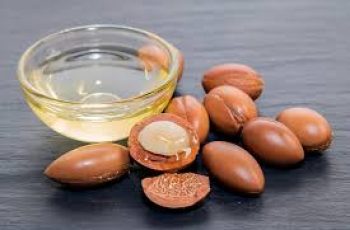
Ferments and Fermentation in Skincare
Fermented ingredients are trending in skincare, but how much do we really know about their benefits and efficacy? This article will explore the science behind ferments, their potential benefits, side effects, and the different types used in popular skincare products like those from SkinMedica and Revision Skincare. We’ll also delve into their origins, how they’re made, and examine research studies that provide insight into their effectiveness.
Hottest skin care trend today
Little data to back up claims
Ferments have interesting benefits
Each type has different benefits
What Are Ferments?
Fermentation is a metabolic process where microorganisms such as bacteria, yeast, and fungi break down complex organic compounds, such as carbohydrates, into simpler substances like acids, gases, and alcohol. In skincare, fermentation often enhances the bioavailability of ingredients, making them more potent and easily absorbed by the skin. Through this process, the size of molecules is reduced, allowing active ingredients to penetrate deeper into the skin.
Wondering if these are right for your skin? Find out which of the 16 skin types you are and we can give you personalized advice.
Benefits of Fermentation
The use of ferments in skincare is inspired by traditional methods, but modern science has taken it to new heights by isolating specific strains of microorganisms to yield targeted skincare benefits. There is not a lot of convincing research yet, but these are the purported benefits of using fermented ingredients in skincare.
Enhanced Absorption
Fermentation breaks down larger molecules into smaller, more easily absorbed particles, increasing the potency of active ingredients such as vitamins, amino acids, and antioxidants.
Increased Efficacy
Fermented ingredients can increase the concentration of active compounds, such as peptides and enzymes, enhancing the effectiveness of products.
Microbiome Balance
Some fermented ingredients, like probiotics, can help balance the skin’s microbiome, supporting the growth of beneficial bacteria while minimizing harmful bacteria.
Side Effects and Downsides
While ferments offer many benefits, they are not without potential side effects. Fermented ingredients may cause irritation in sensitive skin types, especially if the fermentation process increases the acidity of the product. Additionally, there is limited data on the long-term efficacy of fermented ingredients.
Types of Ferments
There are many types of ferments. This article will focus on the most popular ferments used in skin care products today.
Alteromonas Ferment Extract
This ferment is derived from Alteromonas macleodii, a marine bacterium. Alteromonas ferment extract is a key anti-aging and anti-pollution ingredient. Rich in polysaccharides, it chelates heavy metals like cadmium and lead, offering skin protection against pollution. It has been shown to increase collagen production by up to 67% in fibroblast cell cultures. Its high molecular weight polysaccharides also enhance skin hydration by stimulating hyaluronic acid production and improving skin elasticity.
Bacillus Lysate
Source: Derived from the Bacillus species of bacteria, this ferment is obtained through the fermentation of Bacillus strains isolated from various environments, including thermal springs.
Benefits: Bacillus Lysate is gaining attention for its potential anti-aging benefits. It has been shown to reduce wrinkle depth by increasing collagen production. It works by enhancing cellular repair mechanisms and reducing inflammation. Research also highlights its role in increasing the skin’s antioxidant capacity, reducing free radicals and oxidative damage.
Bifida Ferment Lysate
Source : This lysate is derived from the fermentation of Bifida bacteria, a probiotic commonly found in the gut.
Benefits : It is known to strengthen the skin’s natural barrier, making it more resistant to environmental stressors. Additionally, it has anti-inflammatory properties, making it suitable for sensitive or compromised skin. Found in Lancôme’s Advanced Génifique
Chlorella Vulgaris/lupinus Albus Protein Ferment
Chlorella Vulgaris/Lupinus Albus Protein Ferment contains antioxidants like chlorophyll, beta-carotene, and lutein, which protect the skin from oxidative damage and premature aging by neutralizing harmful free radicals.
The ferment has anti-inflammatory properties derived from its peptides and proteins, which help calm redness and soothe irritated or sensitive skin.
Additionally, the ferment supports collagen production through lupin-derived peptides, contributing to improved skin firmness and elasticity. It enhances hydration by strengthening the skin’s barrier, reducing moisture loss, and helping the skin maintain its suppleness.
Galactomyces Ferment Filtrate
Galactomyces is a type of yeast used in the fermentation process. This ingredient is used in SK-II’s Treatment Essence.
Known for its brightening and hydrating properties, Galactomyces Ferment Filtrate improves skin texture and radiance. The fermentation process produces peptides, amino acids, and vitamins, which contribute to its anti-aging effects.
Kombucha Ferment
Derived from tea fermented by Saccharomyces cerevisiae and Acetobacter, Kombucha has gained much popularity. This ferment is rich in probiotics, antioxidants, and vitamins. It helps improve skin firmness and hydration while balancing the skin’s microbiome. The fermentation process increases the bioavailability of polyphenols, making them more effective at protecting the skin from oxidative stress and improving skin tone. It’s a popular ingredient that claims to soothe and revitalize skin.
Leuconostoc/Radish Root Ferment Filtrate
Fermented using Leuconostoc, a type of lactic acid bacteria, and radish root. Known for its natural preservative properties, this ferment filtrate is commonly used as a safe alternative to synthetic preservatives in skincare. It also has mild moisturizing properties and can help balance the skin’s microbiome, promoting the growth of beneficial bacteria while preventing harmful bacteria from thriving. Its antimicrobial properties make it especially useful in products designed for acne-prone skin.
Pseudoalteromonas Ferment Extract
Derived from marine bacterium Pseudoalteromonas. This ferment extract contains proteins and polysaccharides that offer moisture retention and skin repair benefits. It has been shown to stimulate collagen production, improving skin texture. It also has anti-inflammatory properties, making it suitable for sensitive or damaged skin. Its ability to protect against environmental stressors like UV damage and pollution further enhances its role in skincare formulations.
Saccharide Isomerase
Produced through the fermentation of Streptococcus pyogenes. Saccharide Isomerase acts as a humectant, deeply hydrating the skin by converting glucose to fructose. It enhances moisture retention, softens skin texture, and repairs the skin barrier. It also reduces irritation and supports anti-aging by promoting skin elasticity and plumpness while fighting free radical damage.
Thermus Thermophillus Ferment
Thermus thermophillus ferment is an antioxidant and anti-inflammatory ingredient derived from a marine bacterium. It reduces inflammation by suppressing NF-κB , a transcription factor that controls pro-inflammatory cytokines like TNF-α and IL-6 , which helps calm and soothe the skin. Additionally, it acts as a humectant , attracting moisture and preventing transepidermal water loss (TEWL) , thereby improving skin hydration. By reducing oxidative stress and inflammation, it supports anti-aging efforts by preventing damage and maintaining skin elasticity. In skincare, it calms irritation, enhances hydration, and has anti-aging effects. It is found in the skin care products shown below.
Vibrio Alginolyticus Ferment Filtrate
Source: This ferment is derived from a marine bacterium found in deep-sea waters. It’s often used for its ability to provide rapid hydration and strengthen the skin’s barrier.
Benefits: Clinical studies suggest that Vibrio Alginolyticus Ferment Filtrate may increase skin hydration, improve firmness, and promote a lifting effect. One study found a visible reduction in wrinkle depth after 30 minutes of application. It is also known to stimulate sirtuin-3, a protein linked to cellular energy production and longevity, thereby improving the skin’s resilience against oxidative stress.
Where do Ferments Come From?
Ferments are derived from various sources, including bacteria, fungi, and yeast. Marine-derived ferments, in particular, are a growing area of interest in the skincare industry. During the 2010 Malaspina Expedition, scientists collected marine samples from five continents and isolated over 120 previously unknown bacterial strains. These strains are studied for their potential anti-aging and skin-repairing properties. For instance, one bacterium collected near Madagascar was fermented to produce a Bacillus Ferment that has been shown to improve skin texture, increase cellular energy, and reduce the appearance of wrinkles.
Research Studies on Ferments
There is a paicity of data on ferments. Most studies are computer generated analysis of the possible mechanisms of action that th eferments might have based on their components and strucure. In most cases, studies of final formulations on human skin have not been done. This is some of what we k now.
Several studies have looked at the effects of Bacillus Lysate on the skin. (3) One study showed that it can upregulate the sirtuin-3 gene, enhancing ATP production and reducing oxidative stress by 4%. Another in vivo study found a 13% reduction in wrinkle depth just 30 minutes after application, highlighting the potential for immediate visible improvements. However, it’s essential to note that while these early results are promising, more extensive clinical trials are needed to fully validate the efficacy of fermented ingredients.
Ferments offer intriguing potential in the world of skincare, but much remains to be learned about their long-term efficacy and safety. With ongoing research and development, we may soon better understand how these biologically active compounds interact with the skin to provide the anti-aging and healing benefits they promise. In the meantime, consumers should approach fermented ingredients with both interest and caution, always keeping their individual skin type and sensitivities in mind.


